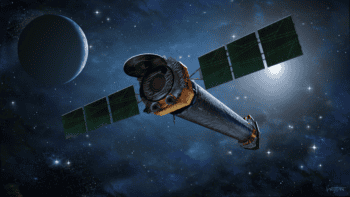Ian Randall reviews The First City on Mars: an Urban Planner’s Guide to Settling the Red Planet by Justin Hollander

Much has been written on the history and immediate future of space exploration – particularly with regard to the present race to put the first humans on Mars. So, it is refreshing to take a more long-term, forward-looking perspective on the subject, with urban planning expert Justin Hollander in his new book, The First City on Mars: an Urban Planner’s Guide to Settling the Red Planet.
Opening with a brief summary on the history of colonization on Earth (and everything that fraught subject entails), Hollander moves quickly to take the reader through the basics, such as the fundamental architectural, transportation and zoning considerations of city planning. He then looks at how we might address the particular demands of settling on Mars, and what can be learnt from constructions in extreme environments on, and in the orbit of, Earth.
Finally, a whistle-stop tour of proposed Martian city concepts – both from speculative fiction and academia – leads to a proposal for the Red Planet’s first city, that he dubs “Aleph”, presumably after the first letter of the Hebrew alphabet. The book is rich and detailed, yet easy-to-read – and certain to engage any space enthusiast.
The book is rich and detailed, yet easy-to-read – and certain to engage any space enthusiast
For this reviewer, however, The First City on Mars has two main issues. One is that despite Hollander’s repeatedly stated ambition that he hopes this book will serve as a literal handbook for future Martian city planners, I couldn’t help but feel that a slightly more popular and less scholarly format could have been a better fit. Certainly, that is what I expected based on the lively cover blurb, which fostered something of a disconnect.
In rare but jarring places, excessive detail – when combined with the textbook format – gives the impression of reading a dissertation by an overzealous student. Case in point: a section on the merits of mass transit systems and the automobile careens off into a bizarre tangent about street racing, the “Fast & Furious” franchise and the “famed Batmobile”. As Burt Ward might have put it: “Wholly irrelevant, Batman!”
But the bigger disappointment comes from the fact that the actual conjuring up of a tangible plan for Aleph is presented rather as a reluctant afterthought.
In fact, Hollander himself readily admits that he is more interested in outlining his underlying “key principles for Mars city building”, after which he would have been “content (on some level) with ending the book”. What does follow is enticing but too brief, and is concluded with an all-too-twee piece of fiction about the life of a new arrival to Aleph city.
A final and unaddressed question arises from how exactly one defines a city and whether Aleph itself – containing just nine tri-layered habitat domes around 100 metres across – quite fits the bill, even with the potential to be replicated modularly across a region. Still, one must admit that “The First Village on Mars” is perhaps a less impressive title.
- 2023 Springer 255pp £24.99pb



